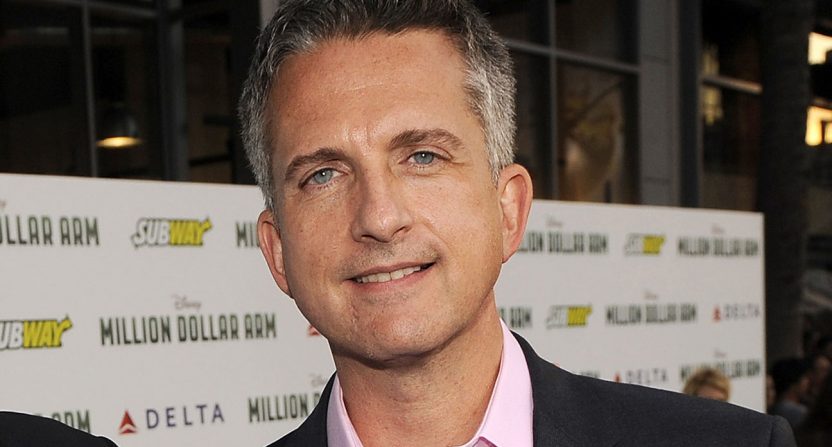The Ringer editor-in-chief Bill Simmons talked a lot of elements of sports media on his most recent podcast, with Ringer editor-at-large Bryan Curtis and Jason Gay of The Wall Street Journal, but he saved the boldest prediction for last. Around 1:08 here, Simmons predicts that ESPN will buy The Players’ Tribune and combine it with The Undefeated:
“I personally think this is one of the destinies for The Undefeated. I think it eventually becomes ESPN’s version of The Players’ Tribune. I’m going to make a May 8, 2017 prediction. I think ESPN buys The Players’ Tribune and combines it with The Undefeated in the next 18 months. I think they try to own that corner, which is a pretty smart corner to try and own if you’re ESPN. You get the athlete relationships, you’re controlling the narrative in a lot of ways. But I do think this is something. I don’t know if it’s a business for The Players’ Tribune, because from what I’ve heard, so many players own stakes in The Players’ Tribune that literally there’s nothing left.”
Simmons isn’t wrong that ESPN might like to expand their relationships with athletes, and might be willing to do so in areas where athletes have more control (heck, they made one of the most notable moves ever in that arena with LeBron’s The Decision). He’s also right that there’s significant value in the as-told-to or first-person stories The Players’ Tribune specializes in. However, that’s one key reason why it seems highly unlikely ESPN would buy it. It’s not just the athletes who own TPT; the company has received $58 million total in equity funding from venture capital firms, most notably $40 million in a Series C round in January. Those investors aren’t likely to sell early without receiving a huge premium on what they paid, and it seems highly unlikely that ESPN would pay that given their current revenue and expenditure challenges.
There are other factors that make this unlikely, too. One is that ESPN doesn’t do a lot of pure acquisitions. They’ll hire people, but they’re unlikely to take over a whole company. And, importantly there, The Players’ Tribune doesn’t really have any key assets ESPN would need. There’s nothing proprietary about their form of as-told-to pieces, which dates back to players’ ghostwriters in newspaper columns and books long before the internet. TPT has done very well at executing that form, and at giving athletes huge levels of control over their stories (and in some cases, over the monetization of those stories), but there’s nothing really there for ESPN to buy, other than the brand name. It would seem far more likely that if ESPN wanted to delve into this area more (again, something they’ve already somewhat dabbled in), they’d just hire people to do it for them. Sports Illustrated has found success with that approach, using it for first-person stories like Jason Collins’ and LeBron’s return to Cleveland that wouldn’t have felt out of place on TPT; ESPN could certainly do the same, and could do so without paying millions and millions for the Players’ Tribune brand. Yes, it would be nice to work with Players’ Tribune EIC Derek Jeter, but millions of dollars nice?
Beyond that, there are questions about if there would be as much editorial success for TPT under the ESPN umbrella. A big part of what’s worked for TPT is the knowledge that it’s run by an ex-athlete (Jeter) with the involvement of a whole lot of other athletes. It’s not a journalistic organization first and foremost, not something that’s out there reporting on these players or writing critical columns about them. It’s a site that runs what the players want to run; the talented people there do a good job of taking those stories, refining them and making them even better, but it’s an outlet the players have control over, and one they can trust. And as Gay notes, many of those athletes might have more qualms about opening up to ESPN, and ESPN would certainly take some criticism for giving athletes control over their stories.
From this corner, ESPN has strengths and TPT has its own strengths, but combining the two doesn’t seem to make a lot of sense. Granted, the tone here seems to be more Simmons musing than actually making a business case for it, but he did go on-record with that prediction. Maybe he’ll be proven correct. For now, though, that seems pretty unlikely.






